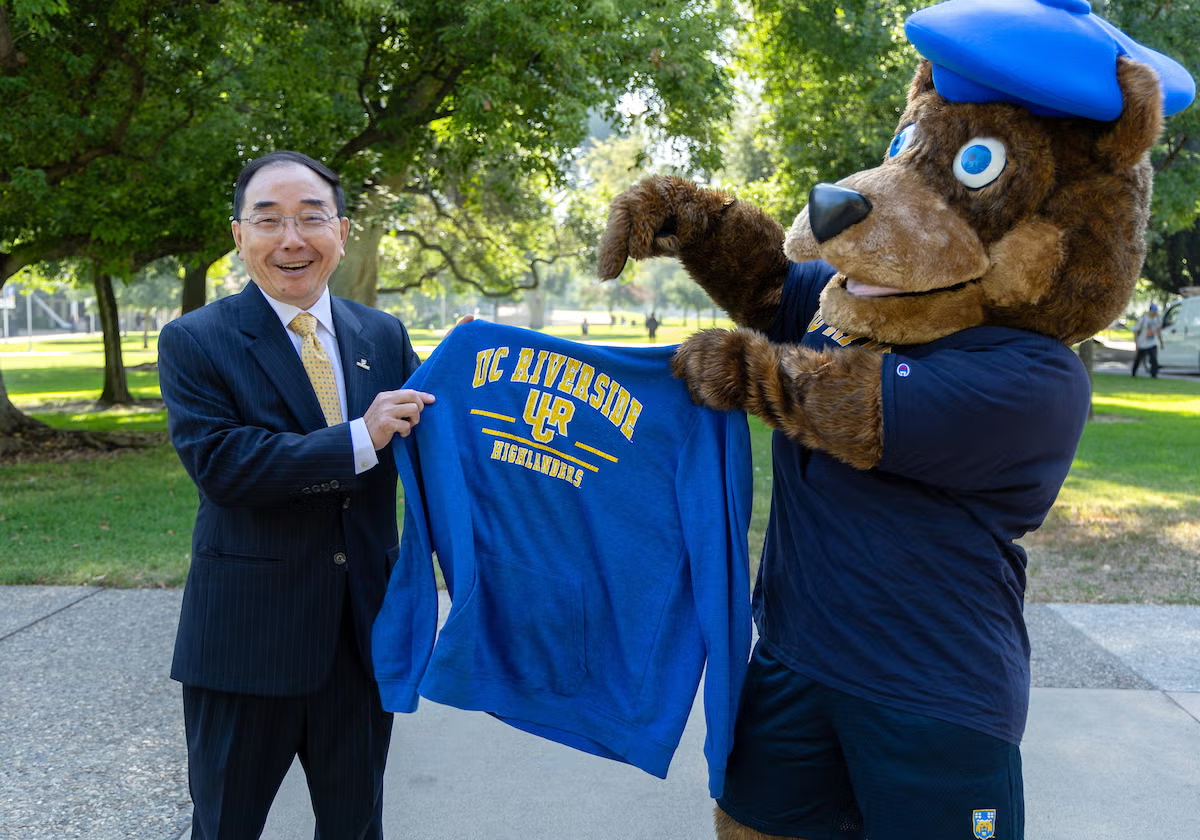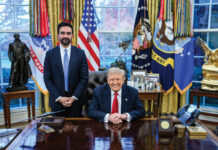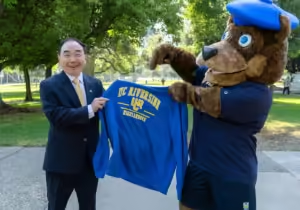
On July 15, 2025, S. Jack Hu, former senior vice president for academic affairs and provost at the University of Georgia (UGA), became the tenth chancellor of the University of California, Riverside (UCR).
As UGA’s chief academic officer, Chancellor Hu built an impressive record in advancing research, faculty outreach and teaching programs. In 2019, he launched the Provost Task Force on Academic Excellence to identify areas where the university could “build on its strengths and maximize its impact on society.” This initiative helped expand research and faculty hiring efforts, particularly in Science, Technology, Engineering and Mathematics (STEM) fields.
Before joining UGA, Hu served as vice president for research at the University of Michigan, where he managed a research operation with annual expenditures exceeding $1.5 billion. He led research activities across the university’s multiple campuses in Ann Arbor, Dearborn and Flint.
Before immigrating to the United States, Hu earned his bachelor’s degree in mechanical engineering from Tianjin University in China. He later became an international graduate student at the University of Michigan, where he completed both his master’s and doctoral degrees in mechanical engineering.
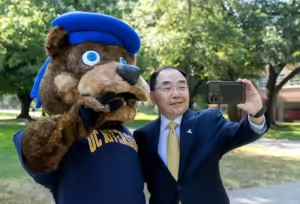 Hu succeeds former Chancellor Kim A. Wilcox, who was appointed in 2013 to lead UCR’s transformation into a major research institution. During his 12-year tenure, Wilcox oversaw the establishment of the schools of medicine and public policy, added more than two million square feet of academic, residential and dining facilities and increased student enrollment by over 25 percent.
Hu succeeds former Chancellor Kim A. Wilcox, who was appointed in 2013 to lead UCR’s transformation into a major research institution. During his 12-year tenure, Wilcox oversaw the establishment of the schools of medicine and public policy, added more than two million square feet of academic, residential and dining facilities and increased student enrollment by over 25 percent.
While Wilcox laid the foundation for UCR’s academic and research growth, the university currently faces some of its most pressing challenges, including cuts to federal research funding and financial aid, UC’s indefinite systemwide hiring freeze, visa revocations for international students and immigration enforcement impacting first-generation and undocumented students.
Chancellor Hu’s leadership will be critical as UCR navigates how to address ongoing challenges facing higher education, particularly under the Trump administration’s repeated attacks on minority-serving institutions like UCR.
The area Chancellor Hu appears most confident in supporting is UCR’s research growth and retaining top faculty. In an interview with UCR News, he states that he plans to work with faculty and academic leadership to continue investing in areas already recognized nationally and internationally, while also identifying “emerging opportunities for us to invest in research.”
He also emphasized the importance of working with the provosts and deans to create a “supportive environment” with competitive salaries, compensation and resources to help retain faculty and researchers at UCR.
Concerns about faculty hiring and retention were raised last academic year after three tenured professors from the Department of Economics left UCR for “very good opportunities” at other institutions. Although the university claimed these professors received “good offers,” retaining top faculty is becoming increasingly difficult amid UC’s systemwide hiring freeze and reduced federal and state funding.
Given Chancellor Hu’s experience leading academic and research affairs at two universities, he will likely bring fresh ideas to expand research programs and keep UCR competitive with other California universities. However, with UCR historically receiving less funding than other UC campuses, it’s important that UCR’s academic growth includes support for all disciplines — not just STEM.
Still, some of the most important qualities UCR students need in a chancellor aren’t necessarily found on paper.
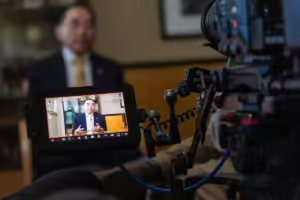 As a minority and low-income serving institution, UCR represents a distinct and often overlooked community in Southern California’s Inland Empire. Ranked as the #1 university in the nation for social mobility, UCR serves a student body where approximately half of its students identify as Hispanic or Latino, and 87 percent of undergraduates receive financial aid.
As a minority and low-income serving institution, UCR represents a distinct and often overlooked community in Southern California’s Inland Empire. Ranked as the #1 university in the nation for social mobility, UCR serves a student body where approximately half of its students identify as Hispanic or Latino, and 87 percent of undergraduates receive financial aid.
As expressed in a previous editorial, the next chancellor should “strongly desire to serve UCR’s unique community” and appreciate its student population.
In his efforts to foster a “student-centric” campus, Chancellor Hu must consider all aspects of the student experience — not just academics. This means strengthening student services such as Counseling and Psychological Services (CAPS), the Financial Aid office, the Student Disability Resource Center, the Office of International Affairs and all the Ethnic & Gender centers in Costo Hall.
But more than anything, being student-centric means showing up — listening to students in person, and attending important campus and community events. Oftentimes, university administrators and students are disconnected because they don’t feel comfortable interacting outside of the classroom.
A chancellor who makes the effort to engage with students face-to-face and attend community events, such as Costo Hall programs and student organization activities, demonstrates a commitment to the people and the campus, not just the position or academic aspect of the role.
Additionally, the university has begun collaborating with local leaders and communities to leverage its academic resources and funding to better serve and uplift the Inland Empire. Most recently, UCR Health announced a major expansion of its medical center, with plans to build a complex on a 21-acre site in Riverside at the intersection of Valley Springs Parkway and Gateway Drive. This development follows the establishment of UCR’s School of Medicine in 2013 — the newest medical school in the UC system.
The goal of both the School of Medicine and the new medical complex is to establish a community-based hub for medical research and healthcare, dedicated to training the next generation of health professionals in the Inland Empire and improving the region’s healthcare quality.
Projects like the new medical center, located near the border of Riverside and Moreno Valley, must be continued under Chancellor Hu’s leadership. The Inland Empire is one of the fastest growing and most diverse regions in California. Hu now has a unique opportunity to work with local leaders and support the region through academic, research and community investment.
New leadership offers an opportunity to bring a different vision for UCR in academics, research, member engagement and beyond. It will be interesting to see what perspective Chancellor Hu brings, both as a former international student and as someone who has served at multiple institutions across the country.
However, leadership must understand the students, campus community and region they are serving to meet their needs effectively. The Editorial Board encourages Chancellor Hu to consider the unique aspects of UCR and the Inland Empire as he begins his tenure — and to lead by engaging in open dialogue, fostering inclusion and supporting the needs of UCR’s diverse student body.

